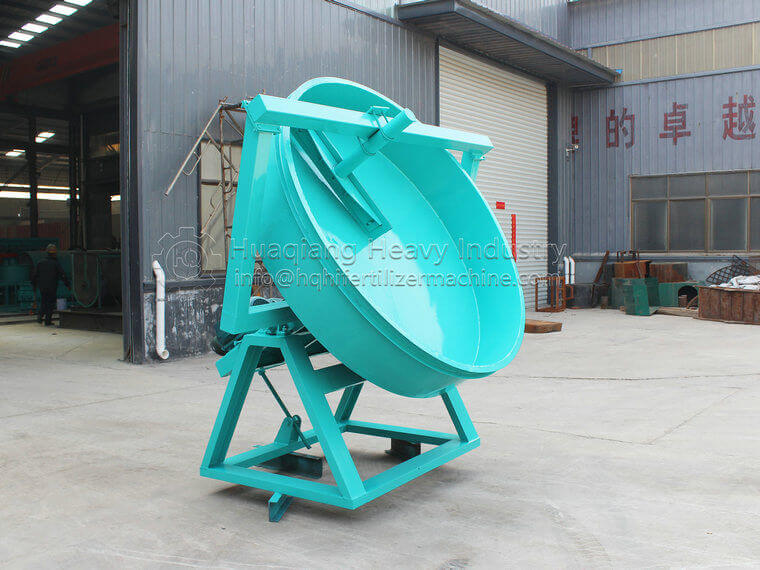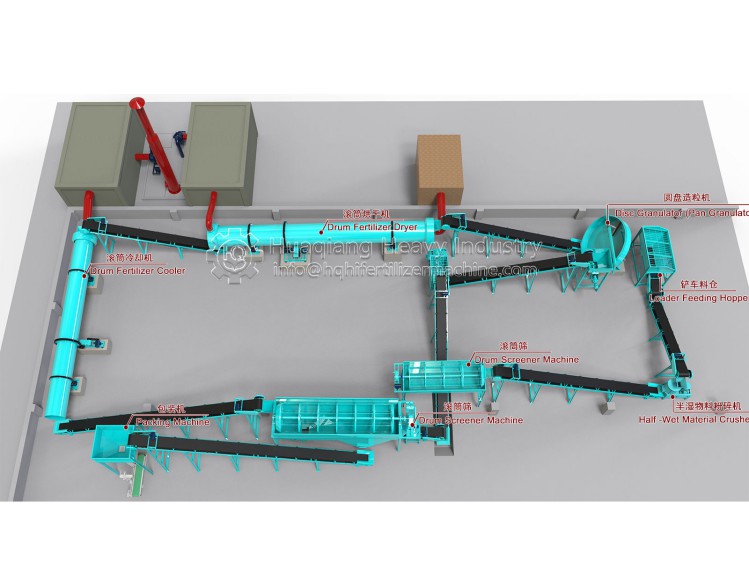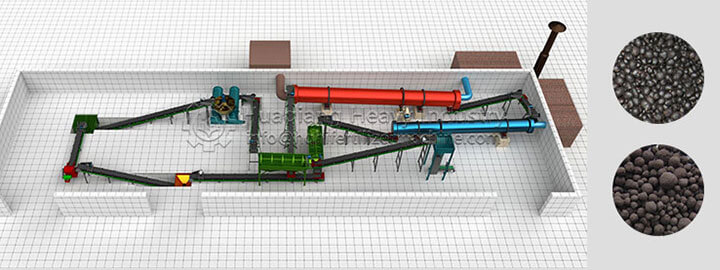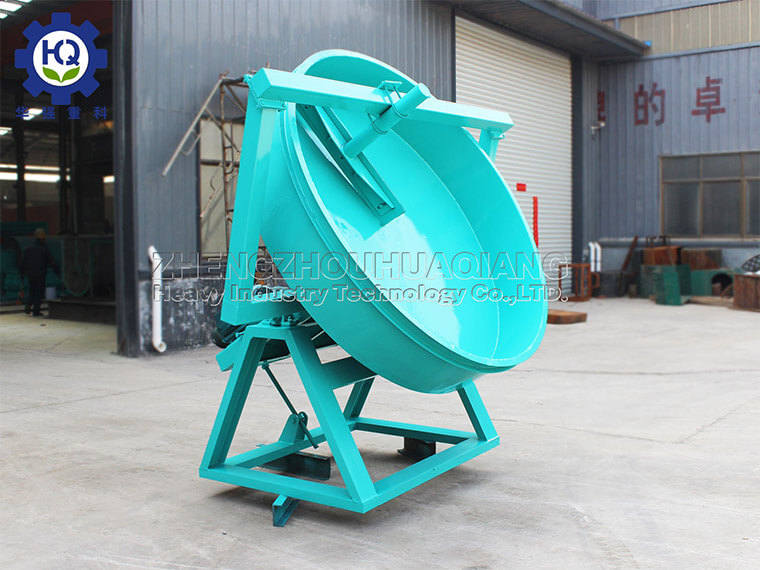The trough-type organic fertilizer composter has a reasonable overall structure, good rigidity, balanced stress, concise, solid, safe and reliable performance, easy operation, and strong applicability to the site. Except for the thick frame, all parts are standard parts, which is convenient for use and maintenance.
Trough-type composter solves the problems of difficult granulation of biological coarse fiber and poor effect. The main machine adopts belt drive, and the ring mold adopts quick-release hoop type. To ensure uniform feeding, the door cover is equipped with a forced feeder, and the designed fully automatic control electric heating device can immediately adjust the dry and humidity of the material. The pressure angle can be automatically adjusted by using the principle of two-way rotation of the thrust bearing, so that the material will not be squeezed or stuffy.
Adjust the clearance between the composter template and the pressure wheel, and the proper pressure can make the ripening degree and compactness of the particles reach a good effect. The tipping machine carries out high wear-resistant heat treatment on the flat die and press roll. The cost of high wear-resistant parts is relatively low, the particle forming rate is high, and the particle strength is high.
The structural configuration of the trough type organic fertilizer composter is as follows:
It is composed of transmission device, lifting device, walking device, tipping device, transfer vehicle and other main components.
The motor directly transmits the power to the cycloidal pinwheel reducer through the sprocket to the tipping drum. The mixing blades on the drum are spirally distributed, which can turn and stir the materials in the fermentation tank to a distance of 0.7-1m, achieving the effect of fast tipping speed and uniform mixing, so as to achieve full contact between the materials and the air, making the fermentation effect of the materials better.
Power transmission device: This device is composed of motor, reducer, sprocket, bearing seat, main shaft, etc. It is an important device to provide power for the tipping drum. Traveling device: the device is composed of traveling motor, transmission gear, transmission shaft, traveling sprocket, etc. Lifting device: the device is composed of winch, coupling, transmission shaft, bearing seat, etc.
Overturning device: the device is composed of sprocket, support arm, overturning drum, etc. Transfer vehicle: This device is composed of traveling motor, transmission gear, transmission shaft, traveling wheel, etc. It provides a temporary carrier for the slot change of the tipping machine.
At present, many pig farms set sewage pipes underground, which does not occupy the ground area and can separate the sewage pipes, that is, set underground sewage pipes; The blister dung process and the leaky floor are both better ways to treat the underground sewage.




.jpg)



